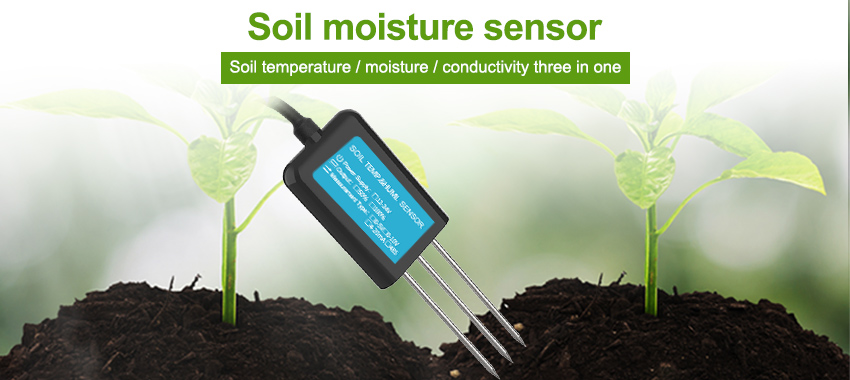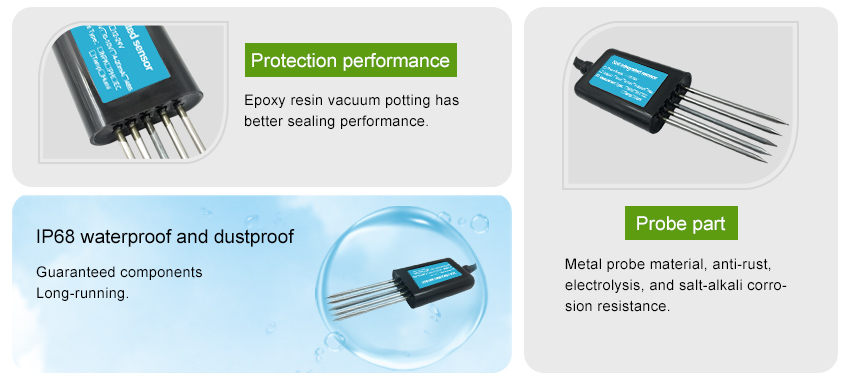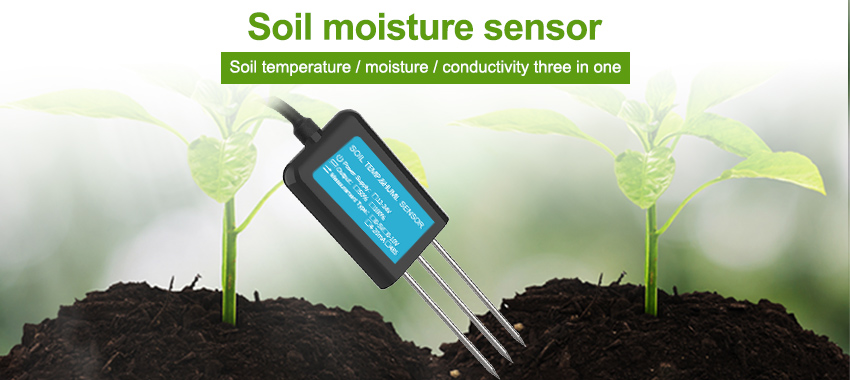In recent years, precision farming has revolutionized the agricultural industry by enabling farmers to make data-driven decisions for improved productivity and sustainability. One technology that plays a crucial role in precision farming is soil sensors. These sensors provide valuable insights into soil conditions, allowing farmers to optimize their farming techniques and enhance crop yield. In this article, we will explore the benefits and applications of soil sensors in precision farming and how they are revolutionizing agricultural practices.
Understanding Soil Sensors:
Soil sensors are electronic devices designed to measure various parameters of the soil, such as moisture levels, temperature, nutrient content, and pH. They are typically placed at different depths in the soil to provide comprehensive data on soil conditions. The information collected by these sensors can be accessed through central systems or mobile applications, empowering farmers with real-time insights.
Benefits of Using Soil Sensors in Precision Farming:
a. Accurate Monitoring of Soil Moisture: Soil moisture is a critical factor in crop growth and development. Soil sensors provide accurate and real-time data on moisture levels at different depths, allowing farmers to make informed decisions about irrigation scheduling. By avoiding over or under-watering, farmers can optimize water usage, conserve resources, and improve crop health.

b. Nutrient Management: Soil sensors enable farmers to monitor and manage nutrient levels in the soil effectively. By measuring key nutrients such as nitrogen, phosphorus, and potassium, farmers can tailor their fertilizer application to specific soil areas based on actual nutrient deficiencies. This targeted approach minimizes wastage, reduces environmental impacts, and optimizes crop nutrition.
c. pH and Salinity Management: Soil pH and salinity directly affect crop productivity. Soil sensors provide real-time data on these parameters, enabling farmers to adjust soil pH levels and implement appropriate measures to mitigate salinity issues. By creating optimal growing conditions, farmers can maximize crop yield and quality.
d. Crop Growth Monitoring: Soil sensors allow farmers to track the growth and development of crops effectively. By analyzing soil temperature and moisture data, farmers can identify patterns or abnormalities that may impact crop health. This early detection enables timely interventions to address potential issues, leading to improved crop outcomes.
e. Precision Irrigation: Soil sensors facilitate precision irrigation techniques. By understanding the moisture distribution across different soil depths, farmers can implement targeted irrigation strategies, delivering water only to areas that require it. This precision irrigation not only conserves water but also optimizes crop yield and minimizes the risk of disease outbreaks.
f. Decision Support System: Integrated with other agricultural data, soil sensor information forms a comprehensive decision support system for farmers. By combining soil data with weather forecasts, crop growth models, and market trends, farmers can make informed decisions about crop rotation, pest management, and resource allocation. This data-driven approach enhances operational efficiency and profitability.
Applications of Soil Sensors in Precision Farming:
Soil sensors find applications in various aspects of precision farming:
a. Variable Rate Technology (VRT): Soil sensors play a crucial role in VRT, where inputs such as seed, fertilizer, and irrigation are varied based on specific soil conditions. By mapping soil characteristics within a field, farmers can tailor their practices to optimize productivity and resource utilization.
b. Automated Irrigation Systems: Soil sensors enable automated irrigation systems that adjust water application based on real-time soil moisture data. These systems can be programmed to deliver water precisely when and where it is needed, reducing labor requirements and minimizing water wastage.
c. Nutrient Management: Soil sensors assist in optimizing nutrient management. By continuously monitoring nutrient levels in the soil, farmers can adjust fertilizer application rates and timings to match crop requirements, thereby maximizing nutrient uptake and reducing environmental losses.
d. Disease and Pest Control: Soil sensors aid in disease and pest management strategies. By monitoring soil conditions that favor or suppress certain pests and diseases, farmers can implement timely interventions or adjust their management practices accordingly. This proactive approach minimizes crop damage and reduces the reliance on chemical pesticides.

e. Research and Development: Soil sensors contribute to agricultural research and development. They provide valuable data for studying soil health, evaluating new crop varieties, and investigating the effects of different farming practices on crop yield and sustainability. This research drives innovation and supports continuous improvement in precision farming techniques.
The Future of Soil Sensor Technology:
The future prospects of soil sensor technology in precision farming are exciting. Here are some potential advancements to expect:
a. Enhanced Sensor Accuracy and Durability: Ongoing research aims to improve the accuracy, reliability, and durability of soil sensors. By developing robust sensor materials and calibration techniques, measurement errors can be minimized, ensuring precise and reliable data collection.
b. Wireless Sensor Networks: The use of wireless networks can enhance the scalability and coverage of soil sensor systems. By connecting multiple sensors in a network, farmers can obtain comprehensive and real-time data for larger farms, enabling better decision-making and improving efficiency.
c. Internet of Things (IoT) Integration: Soil sensors can be integrated with other IoT devices such as weather stations, drones, and machinery. This integration allows for seamless data exchange and automation, enabling farmers to optimize their farming practices based on real-time information from multiple sources.
d. Advanced Data Analytics and Artificial Intelligence: Advanced data analytics and AI algorithms can unlock the full potential of soil sensor data. Machine learning models can analyze large datasets, identify patterns, and generate predictive models to assist farmers in making accurate decisions. This enables proactive and optimized precision farming practices.
e. Blockchain Technology: The integration of blockchain technology can enhance the traceability and transparency of soil sensor data. By securely recording and sharing sensor data on a decentralized platform, stakeholders can access reliable information about soil conditions, ensuring accountability and trust in precision farming practices.
Conclusion:
Soil sensors have become indispensable tools in precision farming, empowering farmers with real-time and accurate insights into soil conditions. By harnessing the power of soil sensors, farmers can optimize their irrigation, nutrient management, and pest control practices, leading to improved crop productivity, sustainability, and profitability. The ongoing advancements in soil sensor technology, combined with integration with other cutting-edge technologies, hold immense potential for the future of precision farming. As we continue to harness the power of soil sensors, we pave the way for a more efficient, sustainable, and resilient agricultural industry.







